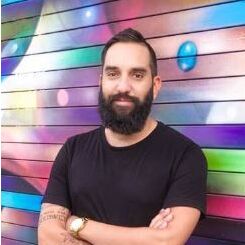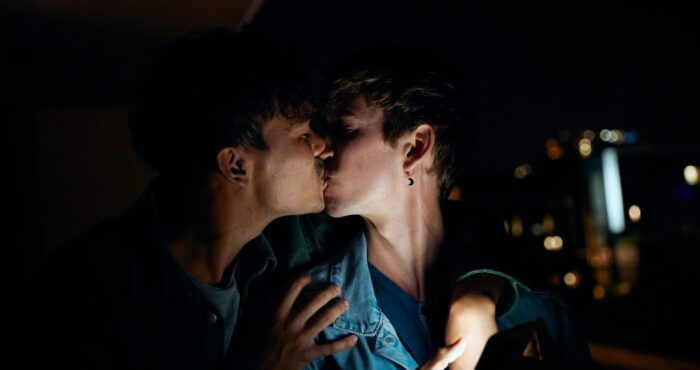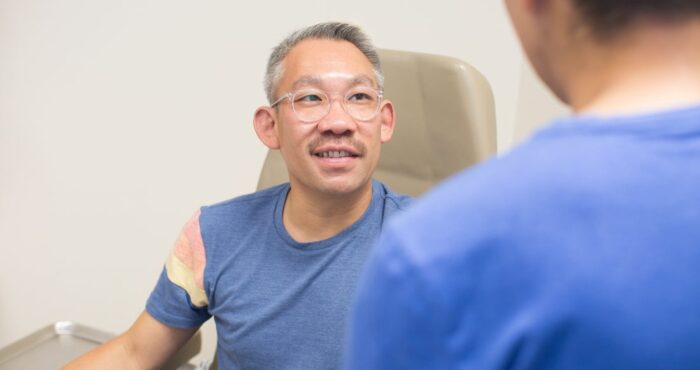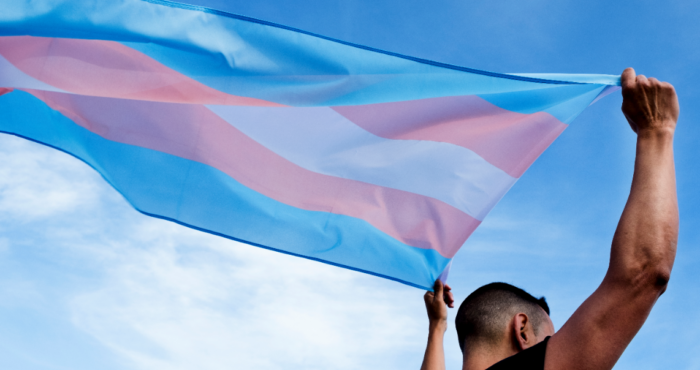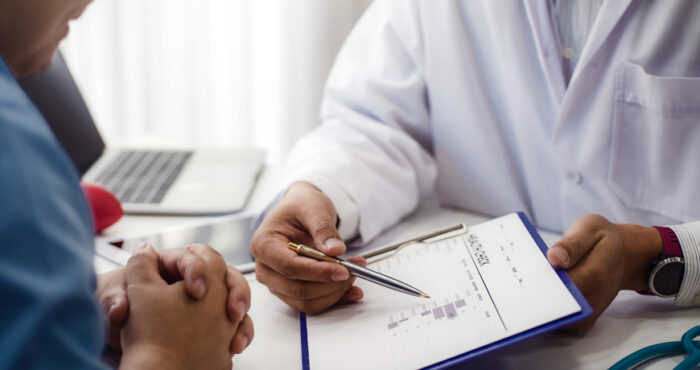That One Time I Didn’t Reveal My HIV Status
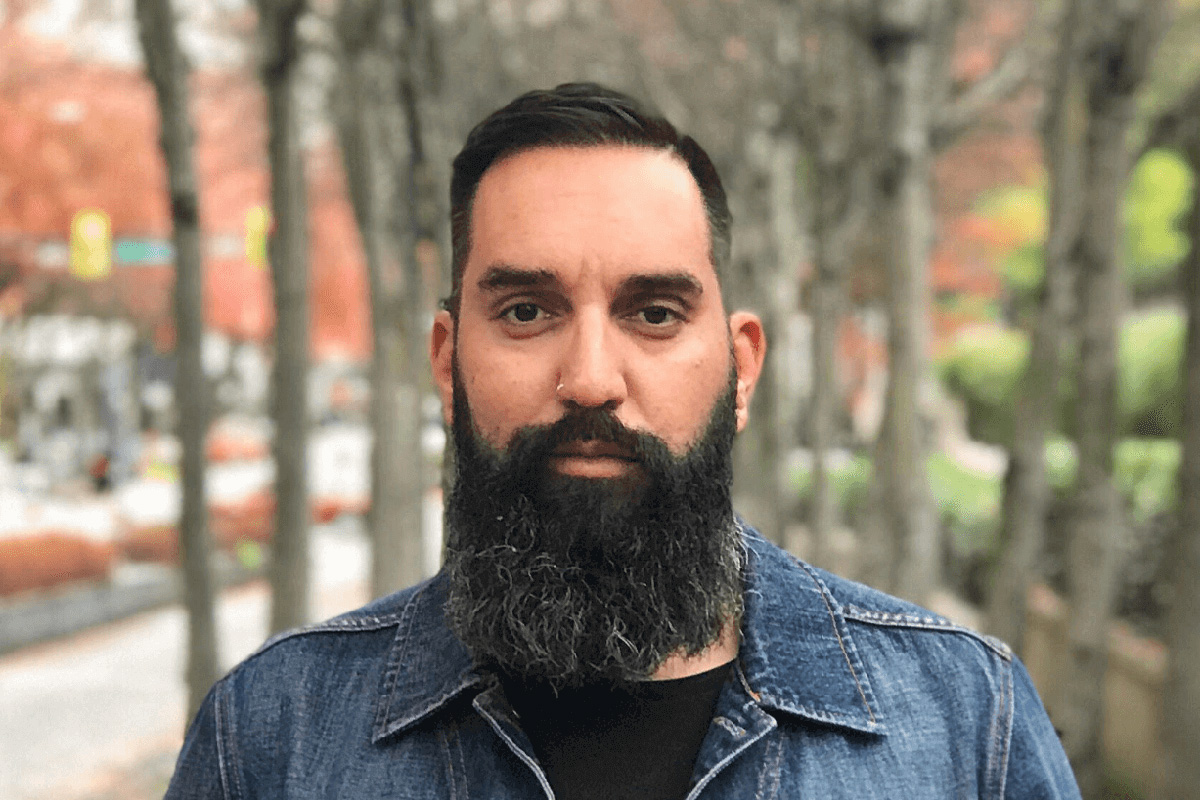
I heard the gay clubs in Johannesburg, South Africa would be fun—and after 10 days of solid work during a conference in Cape Town, I was ready to let loose and really enjoy myself. Normally, I am not much of a partier (and actually like to be in bed rather early!), but this time, I was on a mission. To branch out, enjoy myself, and take advantage of the fact that I was halfway around the world in a city with a well-established gay nightlife scene. I certainly did just that—but my experience left me with a burden of doubt and guilt, and wondering if I had had gone too far.
On a Friday night, I met up with some friends for dinner. As expected, the drinks were flowing. Drunk before we even reached the first club, I was ready to unleash. I immediately fell in love with the atmosphere of the first club we visited. People of every race, nationality and type were there, and everyone was friendly. The drinking continued and the dancing began.
I met a cute guy on the dance floor and I didn’t hold back. We made out, sloppily, for what seemed like hours. I didn’t care who was watching, and then I didn’t care when he left. I quickly found someone else to make out with. Hey, I was there to have a good time. If cute guys wanted to make out with my bearded face, I wasn’t going to stop them!
That night, I somehow got myself back to my hotel, alone, and passed out with my phone in my hand and Grindr turned on.
When I woke up the next morning, I started having flashbacks of the fun from the night before. And I was ready to continue the fun! I quickly texted the two dudes I made out with, after realizing that I had their contact info stored in my phone.
I didn’t hear back, but I saw that I had some Grindr messages waiting for me. I scrolled through them until I came across one that said, “…saw you making out with someone last night, it was so passionate, I wouldn’t mind making out with you.”
The guy who messaged me was gorgeous and what I envision as my “type.” We messaged a few times back and forth and agreed to meet back up at the same club later that evening—and that’s exactly what we did.
I’m not much of a club person, and maybe for that reason, alcohol once again played a big part in the night. When my new friend and I decided to head back to my hotel for the night, we were both a bit intoxicated, but both knew what we were doing.
The attraction was there. Beyond the physical, we instantly connected, and it just felt like a good match. We both wanted to have sex that night. I remember him asking if I had lube, and when I went to grab it from my toiletry bag, I also grabbed a condom. He never asked about condoms, but condoms are a reality for me when it comes to sex with strangers.
I couldn’t tell if he was disappointed or not when I pulled out the condom, but he didn’t say anything in the moment. Neither did I—and the words that we should have exchanged were left unsaid. It still guts me to admit that.
I woke up the next morning and I had a sinking feeling about the previous night. To be clear, I wasn’t worried that we had done anything unsafe or that I had put him at risk for HIV. Although I’m HIV-positive, I’m on medications and maintain an undetectable viral load (which means it’s very unlikely I can transmit HIV to anyone else). On top of that, we used a condom.
I was disappointed because I wasn’t confident enough the night before to bring up my HIV-positive status. I always try to have that conversation before meeting someone in person to avoid any uncomfortable situations—especially rejection—and to make sure we’re on the same page.
I kind of have a routine around disclosure. I have specific talking points. I even penned an “open letter to my future sex partners,” which I sometimes just link people to. For me, it’s easier to just put it out there. But I didn’t do it this time.
I felt guilty of misleading this guy (who was, incidentally, still in my bed). I never outright lied about my status—but there was a lie of omission. It also made me wonder, “Shouldn’t he have asked?”
When it comes to hookups—especially those when you might never see the person again—how necessary is it to bring up HIV status if you’re confident there’s no risk of transmission? I’ve always felt I knew the answer to this question, believing that each person is responsible for his or her own self and should be open to discussing HIV prior to sex. I’ve never had to wait for anyone to ask me about my status because I was always the first to bring it up.
But this one particular occurrence had me questioning if I was being too hard on myself. If there was any sort of risky behavior that could have led to a possible HIV transmission, then that’s one thing. But this wasn’t…and there was no risk. Should I still feel guilty? In the end, I was confused but still felt as if I had deceived someone, which in a way I did, and I fully own up to that.
I told him about my status that morning. It didn’t go well. There was a lot of anger, and I had to quickly put up my defenses and go into survival mode.
I had to stop being me and turn into the knower of all things HIV, opening myself up to any questions he had. I accepted his anger—believing that was the right thing to do. I didn’t question why he didn’t ask me, but instead took the blame and insisted on being an open book. I was in South Africa, a country at the epicenter of the HIV epidemic, and had previously learned that many gay men there aren’t keen on talking openly about HIV.
I left South Africa to go home, but I continued the conversation with him. Unfortunately, it never fully turned into a conversation about HIV stigma, the realities of disclosure or even preventative measures, but instead was more reassurance conversation that everything was going to be OK after our experience together. He was pissed, and rightfully so. But in the end, we still continue to talk, and I’m even going to see him again on a future planned trip to South Africa.
Did we both learn something from our experience? I hope we each take something away from our shared experience—and are able to incorporate that into future sexual interactions with others.
What I take away is a new appreciation for the fact that disclosure isn’t easy. Sometimes there’s still shame, and stigma, that comes from HIV. Until we learn to fully accept ourselves for who we are, HIV status and all, disclosing to someone will never be easy.
—
The opinions expressed in this article are those of the author alone. They do not reflect the opinions or positions of BETA or of San Francisco AIDS Foundation. BETA serves as a resource on new developments in HIV prevention and treatment, strategies for living well with HIV, and gay men’s health issues. Our goal is to inform, empower, and inspire conversation.






